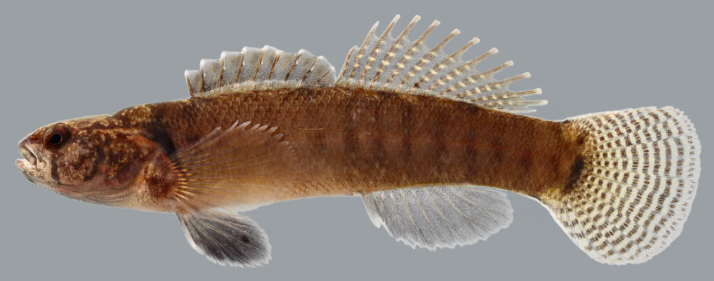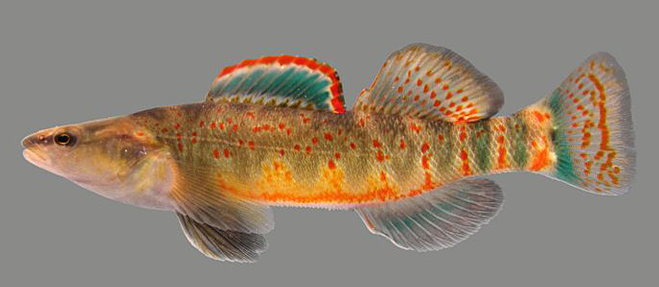introduction:
In the ever-evolving tapestry of our natural world, the . Ky fish and Wildlife Service emerges as a stalwart guardian, steadfastly committed to navigating the complex terrain of environmental shifts. As we find ourselves at the confluence of unprecedented challenges—from climate change to habitat degradation—the agency stands at the forefront, ready to adapt and respond with unwavering dedication.
At its essence, the . Fish and Wildlife Service embodies a dynamic approach to conservation, acknowledging the inevitability of change and embracing it as an opportunity for growth. This commitment to adaptability forms the crux of its mission, as it strives not only to preserve but to actively enhance the health and resilience of our ecosystems.
In this exploration, we delve into the intricate strategies employed by the . Ky fish and Wildlife Service to navigate the multifaceted landscape of environmental concerns. From a holistic ecosystem management perspective to science-driven decision-making, flexible policy implementation, collaborative partnerships, and extensive education initiatives, the agency’s toolkit is as diverse as the challenges it faces. Together, we unravel the narrative of an agency that not only reacts to change but anticipates it, ensuring the continued vitality of our natural heritage in the face of an ever-shifting environment.
Embracing Change, A Fundamental Perspective

At its core, the . Fish and Wildlife Service recognizes that change is inevitable. In the face of evolving environmental concerns, the agency proactively embraces a mindset that welcomes adaptation as a fundamental necessity. By doing so, it positions itself not merely as a reactive entity but as a proactive force, ready to respond to emerging issues with agility and purpose.
Holistic Ecosystem Management
One of the cornerstones of the . Ky fish and Wildlife Service’s adaptive approach lies in its commitment to holistic ecosystem management. Instead of addressing environmental concerns in isolation, the agency takes a comprehensive view, considering the intricate interplay of various elements within ecosystems. This approach ensures a more nuanced understanding of the challenges at hand and facilitates the development of effective, well-rounded solutions.
Science-Driven Decision Making
In the pursuit of adaptation, the . Fish and Wildlife Service relies heavily on science-driven decision-making. Rigorous research, data analysis, and collaboration with scientific experts form the bedrock of the agency’s strategy. This commitment to evidence-based practices enhances the precision and efficacy of their initiatives, allowing for informed responses to emerging environmental issues.
Flexibility in Policy Implementation

Recognizing the need for flexibility in a world of constant change, the . Fish and Wildlife Service adopts an adaptive policy implementation approach. Rather than adhering rigidly to predefined strategies, the agency remains open to adjusting its policies based on real-time feedback, new findings, and the evolving nature of environmental challenges. This flexibility enables a more responsive and effective conservation framework.
Collaborative Partnerships
No entity can navigate the complexities of environmental shifts alone. The . Ky fish and Wildlife Service understands this and actively fosters collaborative partnerships with other agencies, non-profit organizations, and local communities. By pooling resources and expertise, these partnerships amplify the impact of conservation efforts, creating a network of support that transcends organizational boundaries.
Education and Outreach Initiatives
Adapting to environmental shifts requires more than just organizational adjustments; it necessitates a collective understanding and commitment. The . Fish and Wildlife Service recognizes the importance of public awareness and invests in education and outreach initiatives. By engaging with communities and fostering environmental stewardship, the agency aims to build a shared responsibility for the conservation of our natural heritage.
Strategic Evolution, Fish and Wildlife’s Adaptive Approach
In the face of constant environmental flux, the . Fish and Wildlife Service exhibits a remarkable capacity for strategic evolution. This heading encapsulates the agency’s commitment to staying ahead of the curve, proactively adjusting its conservation methods to address the ever-changing landscape. From policy shifts to operational adjustments, the . Ky fish and Wildlife Service’s strategic evolution reflects a dedication to fostering resilient ecosystems. This section delves into the dynamic tactics employed by the agency, shedding light on its ability to anticipate and navigate environmental shifts. Through a nuanced exploration, we uncover the deliberate, forward-thinking measures that characterize the . Fish and Wildlife Service’s approach, positioning it as a pivotal force in the ongoing battle for the preservation of our diverse natural heritage.
Dynamic Conservation Response, Ky fish and Wildlife’s Swift Adaptation

In the intricate dance between nature and conservation, the . Fish and Wildlife Service emerges as a dynamic force, swiftly responding to environmental shifts. This heading encapsulates the agency’s ability to act in real-time, mitigating the impacts of changes on wildlife and ecosystems. Through a lens of adaptability, we explore the responsive initiatives undertaken by the . Fish and Wildlife Service. From on-the-ground interventions to broader conservation strategies, this section unravels the agency’s commitment to dynamic conservation response. By embracing agility and employing targeted measures, the . Ky fish and Wildlife Service ensures that its actions align with the evolving needs of our natural world. In this exploration, we uncover the essence of a conservation entity that not only reacts to change but actively shapes a sustainable future for the diverse ecosystems under its stewardship.
Conclusion
In conclusion, the . Ky fish and Wildlife Service emerges as a beacon of adaptability and resilience in the face of contemporary environmental challenges. Through a multifaceted approach, the agency has demonstrated its commitment to not merely reacting to change but proactively shaping the future of conservation.
As we navigate an era marked by unprecedented shifts in our ecosystems, the . Fish and Wildlife Service’s holistic ecosystem management strategy stands out as a guiding principle. By considering the intricate connections within ecosystems, the agency ensures that its initiatives address the root causes of environmental concerns, fostering lasting and sustainable solutions.
The reliance on science-driven decision-making further underscores the agency’s dedication to precision and efficacy. In an era where information is key, the . Ky fish and Wildlife Service leverages scientific expertise to inform its policies and actions, enhancing its capacity to address emerging issues with informed and targeted interventions.
Moreover, the agency’s emphasis on flexibility in policy implementation, collaborative partnerships, and robust education initiatives paints a comprehensive picture of an organization that not only adapts to change but actively engages communities, fosters cooperation, and instills a sense of shared responsibility for our natural world.
In the tapestry of conservation, the . Fish and Wildlife Service weaves a narrative of innovation, adaptability, and collective action—a testament to its pivotal role in safeguarding the biodiversity and resilience of our planet for generations to come.
FAQs
Q1: What is the ky Fish and Wildlife Service, and what is its primary mission?
A1: The . Fish and Wildlife Service is a federal agency dedicated to the conservation, protection, and enhancement of fish, wildlife, and their habitats. Its mission is to work towards ensuring the long-term well-being of these natural resources.
Q2: How does the ky Fish and Wildlife Service adapt to changing environmental conditions?
A2: The agency employs a multifaceted approach, including holistic ecosystem management, science-driven decision-making, flexible policy implementation, collaborative partnerships, and education initiatives. These strategies allow for a proactive response to emerging environmental concerns.
Q3: What is holistic ecosystem management, and why is it crucial for the Ky fish and Wildlife Service?
A3: Holistic ecosystem management involves considering the entire ecosystem’s interconnected components rather than addressing issues in isolation. This approach is crucial as it enables a more comprehensive understanding of environmental challenges, leading to more effective and sustainable conservation efforts.
Q4: How does science play a role in the decision-making processes of the Fish and Wildlife Service?
A4: The agency prioritizes science-driven decision-making by conducting rigorous research and collaborating with scientific experts. This ensures that policies and actions are based on credible data, enhancing the precision and effectiveness of conservation initiatives.
Q5: Why does the . Fish and Wildlife Service emphasize flexibility in policy implementation?
A5: Recognizing the dynamic nature of environmental challenges, the agency values flexibility in policy implementation. This allows for adjustments based on real-time feedback, new discoveries, and the evolving landscape, ensuring that conservation strategies remain adaptive and relevant.
Q6: How does the Fish and Wildlife Service collaborate with other entities to address environmental concerns?
A6: The agency actively fosters collaborative partnerships with other federal agencies, non-profit organizations, and local communities. These partnerships leverage resources and expertise, creating a network of support that enhances the impact of conservation efforts.
Q7: What education initiatives does the . Fish and Wildlife Service undertake?
A7: The agency invests in education and outreach initiatives to raise public awareness and foster environmental stewardship. By engaging with communities, the . Fish and Wildlife Service aims to build a shared responsibility for the conservation of natural resources.

